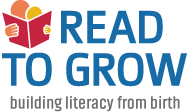Literacy experts have long known that reading to toddlers, even babies, can make a big difference in children’s reading abilities later in elementary school. But does simply giving away free books to low-income families with young children help with early reading? An analysis of 44 studies of book giveaway programs concludes that free stuff does work.
Three researchers from the Netherlands and Australia looked for all the high-quality studies they could find on book giveaway programs, which reach millions of children under 5 in North America and Europe, and focused on the ones that compared the early literacy of children who received books with those who didn’t. Despite the large number of studies that made the cut (44), only three giveaway programs were analyzed by all of them: Bookstart, Dolly Parton’s Imagination Library and Reach Out and Read. (Multiple studies of the same program tested how the program worked with different kids and in different places.)
The three programs are quite different. Bookstart, a program that originated in the United Kingdom, gives only one or two free books on one or two occasions. Imagination Library, launched by American country music star Dolly Parton, mails a new book a month from birth to age 5. Reach Out and Read uses health professionals instead of the postal service; pediatricians and nurses hand out books out during regular checkups and are trained to tell parents that reading is important for cognitive development. At some health clinics, volunteers model effective book reading strategies for parents. Some of the programs give books to all families who want them regardless of income, but the studies mostly focused on low-income children — the intended target audience.
All three programs worked when measured by how much parents read to children and by how much kids’ early literacy skills improved. But the program that used healthcare professionals to give out the books and personally tell parents to read them achieved the largest literacy gains.
“Participation in any book giveaway program yielded a positive effect,” said Ingrid Willenberg, one of the researchers, by email. “[But] we found that programs like Reach Out and Read, that involve interaction with parents and provide guidance on how to read, showed a greater effect.”
Willenberg, a senior lecturer at Australian Catholic University, was one of the three authors of the meta-analysis, “Do Book Giveaway Programs Promote the Home Literacy Environment and Children’s Literacy-Related Behavior and Skills?” published in the journal Review of Educational Research in May 2020.
The number of free books, it turned out, didn’t matter. Bookstart, which gives away only a few, was just as effective as Dolly Parton’s Imagination Library which gives out 60 books to each child over five years. (Reach Out and Read distributes about 10 books to each child over the same period.) What this means is that the giveaway programs don’t need to build an entire library for each child to be successful. This compilation of research supports the theory that an age-appropriate book or two laying around the living room can be an effective nudge for the parent to read. “The book gift may entice caregivers to try shared book reading, which may then lead to the development of a regular book reading routine, especially when these incidental attempts are positive experiences for both the caregiver and the child,” the authors wrote.
Harvard education professor James Kim, a reading specialist, cautions against mailing out books without some sort of parent interaction. “I would say that the most cost-effective and effective approach is not simply to give books to kids/families but to ensure that there is some form of support via contacts, tips on shared reading, and providing ongoing nudges/supports,” Kim told me via email. “Books are not a causal mechanism. Reading books and shared reading is the mechanism that leads to better skills. Books are just the resource that facilitates these literacy processes.”
And yet the authors of the book giveaway meta-analysis characterized the literacy benefits of simply giving away books as “impressive.” They noted that in a 2011 meta-analysis, more expensive family programs that involved parent guidance and training had a smaller literacy benefit than what they calculated for book giveaways. Eliminating human intermediaries also keeps costs low. Dolly Parton’s 60-book giveaway can cost as little as $126 per child over five years, the authors noted. A doctor’s or an educator’s time is much more expensive.
Given the cost effectiveness of the hands-off approach, the researchers suggest expanding book giveaways to more countries, especially places like sub-Saharan Africa and Middle Eastern refugee camps where many children don’t have access to books. As Dolly Parton herself once wrote, “True love, so hard to find, it knows no boundaries.” The same might be said for reading.
This story about book giveaways was produced by The Hechinger Report, a nonprofit, independent news organization focused on inequality and innovation in education.
SEP
2020

